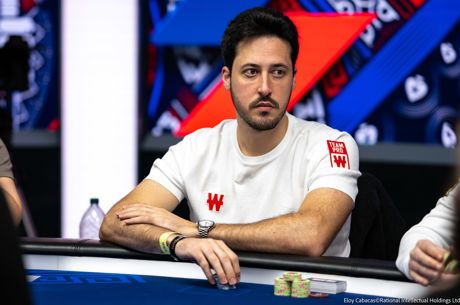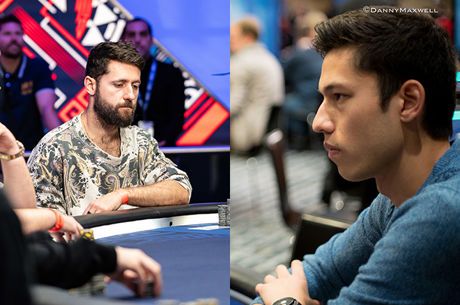Pro Analysis: Making a Play Based on a Sample Size of One

Table Of Contents
After joining 888poker in May 2022, Ian Simpson has dived headfirst into his role as an Ambassador. Not only has he been winning at the online tables, but he also headed to Las Vegas to play in the WSOP.
The popular Twitch streamer has a wealth of poker knowledge, and here he shares some thoughts on a hand he played online on Christmas Day 2021.
On Christmas day, with my wife and daughter fast asleep, I found myself playing some online cash. You won’t find me writing many strategy articles about cash games, but in this rare instance I didn’t want to register long-lasting tournaments and given the rumours about how good the tables are on Christmas Day I decided to give it a spin.
I encountered the following two hands in quick succession against the same opponent.
Hand #1: Pocket Eights
With 8♣8♠, I defended the big blind for a 3x raise vs the cut off and check-called a half-pot bet on the flop of 10♦9♥7♣. The turn was the J♣ and it went check check. On the 10♥ river I check-called a bet of half pot and my opponent revealed K♣Q♦ for the better straight. Nothing was too out of the ordinary on my part; however it did reveal my opponent checking back the turn with the nuts.
"A solver is not going to do this..."
A solver is not going to do this, and in this particular cash game the aliases were anonymised, so there isn’t any strange meta game one could use to justify for not betting here. If you do favour a check here, grab a pen and paper and make a quick list of all the two pair, sets and worse straights that the opponent can have that just have to start haemorrhaging money vs your nut straight.
How to Gather Reads When Playing Against Anonymous Opponents
In short, they’ve checked a hand they most certainly should not check, and that’s a piece of information to squirrel away to be used later.

Hand #2: 6-9 Suited
Moving onto the next hand, against the same opponent, I defended the big blind with 6♦9♦ for three big blinds and check-called a half pot bet on the flop of J♣7♠6♣. The turn was the Q♦ and it went check check.
On the Q♠ river I check and face a half-pot bet. By happy coincidence, we’ve found the exact same betting sequence against the exact same opponent. Let me make a few points about the hand that lead me to my river decision:
- The moment we pressed call with the 6x9x suited on the flop, we were almost at the bottom of our range and it would have been a very easy fold on the turn to a second bet from our opponent on a card that benefits their range more than ours.
- They checked the nuts on the turn in that first hand. So to some unknown frequency, they will check hands that would usually make for a great bet. AxJx, KxQx, QxQx, JxJx, 6x6x and 7x7x all spring to mind.
- Because of their turn mistake in the previous hand, I’m going to assume they also check the turn with a lot of hands that a different player would bet to a very high frequency. In my mind they made a pretty big passive mistake in the previous hand and I’m going to assume they will also take a passive line too frequently with hands that often benefit from a bet. Suited hands like K♠X♠, 10♠9♠, 9♠8♠, 4♠5♠ etcetera all have good reason to bet. Even small pocket pairs are hands that can gain a lot by being turned into bluffs here.
Conclusion
In the world of GTO, when my hand gets to the river here after a check on the turn I’m not counting so many of those missed hands in my opponent's range with which they can bluff with. Usually, when an opponent checks turn and then they bet river they’ll have less combinations of those listed missed hands above than a passive player, because they would have bet them on the turn at a reasonable frequency.
Of course, they’ll still have a bunch of bluffs that my pair of sixes beat, but I’m going to use my 7x and all of my Jx to call those down, as I think also calling with my worst pair combinations would mean I’m calling too often. In this case however I feel justified in widening my calling range to include the 6x based on my assumptions from their passive mistake earlier.
Here’s the secret though, it’s not actually a play based on a sample size of one. It’s just that this one play of theirs puts them into a category of player that collectively I’ve played thousands of hands against, which makes me confident that a call here will be profitable in the long run.










